The scope of ‘Vishachikitsa’ in Ayurveda extends much beyond poisonous stings and bites. The term ‘visha’ includes any poison that enters the body through stings, bites and fluids; along with endotoxins produced and accumulated in the body due to faulty metabolism.
SigruPunarnavadi choornam is a traditional ‘Vishahara’ recipe recommended for external use. Applied locally, it immediately neutralises poisons and toxins. It also treats inflammatory pain and oedema in the affected region.
Features & Benefits
- Fine powder of Sigru root bark (Moringa oleifera), Punarnava (Boerrhavia diffusa), Rajani (Curcuma longa),Vacha (Acorus calamus), Chandana (Santalum album), Pata (Tricosanthes dioica), Madhuka (Glycyrrhiza glabra), Sirisha (Albizzia lebbek), Gokshura (Tribulus Terrestris) etc.
- Excellent remedy for inflammatory pain and swelling resulting from insect and animal stings and bites, toxic substances etc.
- Root bark of Moringa and Punarnava neutralise poisons and toxins and draw out deep tissue inflammation. It improves blood circulation and lymphatic drainage in the affected area, quickly relieving inflammatory pain and oedema.
- The powder in a suitable medium is also useful in swelling associated with bursitis and rheumatic joints.
- This potent formula effectively balances Pitta and Kapha at the site of inflammation.
Dosage and Instructions
Based on the area affected, sufficient quantity of SigruPunarnavadi Choornam should be taken into a paste with juice of Moringa leaves. The paste should be applied thickly and left on the site for 15 to 20 minutes without drying.
Key Ingredients
Sigru (Moringa olieifera)
Sigru is commonly known as Drum stick tree. Root bark, stem bark, leaves, fruits, and seeds are used for medicinal purposes. Leaf juice is used in conjunctivitis and paste is applied when there is swelling around the eyes. The leaf decoction is internally taken for body ache and dysmenorrhea.
Punarnava (Boerhaavia diffusa)
The word ‘Punarnava’ means that which rejuvenates. Mainly used in painful as well as oedematous conditions. The properties include immunomodulation, hepatoprotection (for liver cells), anticancer activity, antidiabetic activity, anti-inflammation, and diuresis. This is useful in treating cancer, jaundice, dyspepsia, inflammation, ophthalmic, enlargement of spleen, abdominal pain, and an anti-stress agent.
Rajani (Curcuma longa)
It is commonly known as turmeric and easily found in the kitchen. Possess anti-inflammatory, anti-allergic, anti oxidant properties. The drug is commonly used in insect bites, indigestion, anorectal conditions like hemorrhoids, etc. Turmeric powder mixed in water and taken in the early morning eliminates the toxins from the body.
Chandana (Santalum album)
Chandana is commonly known as Indian sandal tree and well known for its aroma. Considered sacred in some religions, it is used externally for skin related and pyretic conditions. Also use internally in conditions like gastric problems, fever, chronic cough. Chandana is applied over the face to improve skin condition.
Pata (Cyclea peltata)
Pata is commonly known as Indian moonseed. Enhancing immunity and preventing inflammation of the respiratory passages due to its immunomodulatory and anti-inflammatory properties. It is used in conditions including infertility, wound, hypertension, and skin diseases.
Yashtimadhu (Glycyrrhiza glabra)
Roots as choorna are mainly used for Ayurvedic preparations as well as a single drug. Yashtimadhu oil externally used for various skin conditions as well as decoctions is used internally for respiratory disorders and digestive disorders.
Gokshura (Tribulus terrestris)
It is a natural aphrodisiac (arouses sexual desire) and has diuretic property thus it’s used in urinary disorders. It is used to tone muscles before childbirth, to cause an abortion, and to stimulate milk flow. Effective in treating chest pain, eczema, enlarged prostate, sexual disorders, and infertility.
Speciality:100% Natural. Purely herbal. Vegetarian.













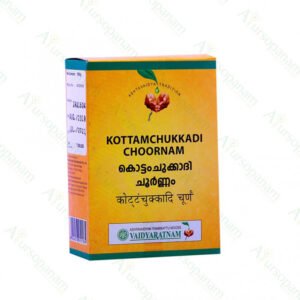



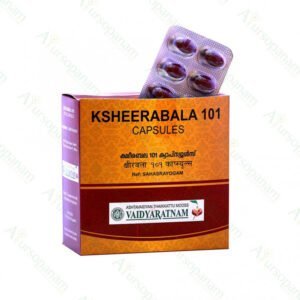


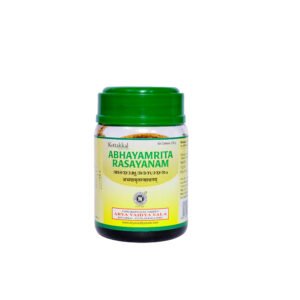













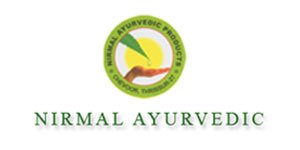

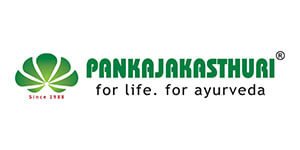




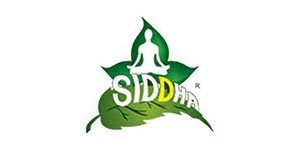











Ratings & Customer Reviews
Reviews
There are no reviews yet.